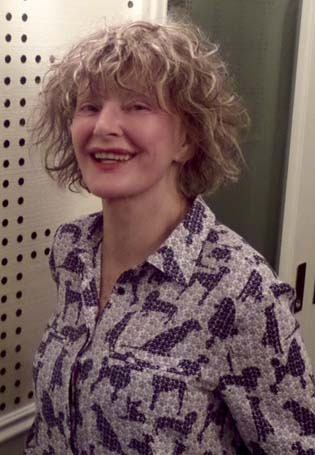by Constance See
Special to the Sounder
Sarah Scribner-Coughlin awoke on her 46th wedding anniversary in August 2007, lying next to her husband Michael at their home in Portland, Maine, sensing something was wrong.
She followed her intuition and performed a breast self-exam.
“I felt a sharp lump, and knew immediately it was cancer,” she said. “I am a peridontal hygenist. I performed oral cancer tests all day long on my patients. In my mind, it flashed immediately – breast cancer, chemo, mascetomy. It all ended up being true.”
Scribner-Coughlin called her daughter-in-law Annie Luerkemeyer, a doctor and lecturer in the field of HIV at the University of California.
She advised her mother-in-law, “No matter what is said, get a biopsy.”
Only five months prior in March, Scribner-Coughlin’s physician gave her a clean bill of health following her usual mammogram.
He was wrong.
She then went to her internist with the mammogram and he said, “you’re fine.”
“I said, ‘No!’ and demanded an ultrasound,” Scribner-Coughlin remembers.
The doctor fought her on this decision, but eventually gave in. Next, Luerkemeyer suggested a needle-core biopsy. The radiologist recognized a problem, and proceeded to schedule the process a month later.
“I insisted on the biopsy the next day,” Scribner-Coughlin said. “I think they were beginning to get scared.”
The biopsy complete, she waited and waited. A week passed before she called her daughter-in-law, who informed her, “The doctor probably had the results in 72 hours!”
After calling the doctor herself, he told her: “You have a good kind of cancer, a treatable one.”
Genetically transferred through the paternal lineage, Scribner-Coughlin’s family has a history of cancer.
She sought an appointment with Dr. Barbara Smith, head of the breast cancer center at Massachusetts General Hospital. Several years prior, Dr. Smith had performed a biopsy on a tumor that turned out to be benign.
“When I called, the receptionist said Dr. Smith wasn’t accepting any new patients. I started crying on the phone,” said Scribner-Coughlin.
Touched by her outpouring of emotion, the receptionist contacted Dr. Smith. An appointment was set. All of her records were sent to the hospital. Dr. Smith discovered what no other previous physician had: Scribner-Coughlin’s lumps had been clearly observable on every X-ray for the last seven years, growing slowly to their current size.
She elected to wait four months in order to get the hospital’s head of plastic surgery to perform the surgery. On December 6, 2007, she underwent a single mascetomy of the left breast and lift of the right breast to match the reconstruction were performed in a seven-hour surgery.
Four months of chemotherapy followed. About three weeks after the chemo was complete, test results came back.
“We have bad news,” Scribner-Coughlin was told by her doctor. “You have one microscopic cell in one of those lymph nodes. I’ll meet with the tumor board. If the tumor board feels you will be at risk of edema if I go back to surgery for the lymph nodes, we will do light chemo, four months instead of six.”
When she got off the phone, she burst into tears.
“I thought, I could die. I told my husband, ‘If I do die, I want you to scatter my ashes on Orcas Island’. We were planning on moving there,” she said.
Nearing retirement, the Coughlins spent more than two years selecting the best place to relocate to on the West Coast, allowing them to live closer to family members. Their research guided them to Orcas Island.
They planned to relocate in 2007, but the cancer diagnosis delayed their move. Following her mascetomy and recovery, Scribner-Coughlin had a few weeks to rush to Orcas to find a new home, then on to chemo which ran from January to June of 2008.
She used to be a hair model in New York, but after chemo her hair grew back curly and white.
“It was snow white so I thought I will reinvent myself and look like a New York sculptor with big earrings and lots false eyelashes,” she said. “Within two weeks I had huge black patches and looked like a dalmatian on steroids! I went to the hairdresser and had it colored.”
In July of 2008, the Coughlins loaded up their two dogs and drove cross-country to their new home. Once they settled in, she met a woman who was a member of the Orcas Island Cancer Support Group. Members are confidential. Impressed with Scribner-Coughlin’s high energy and positive spirit, she asked Sarah to speak at an upcoming meeting. Sarah shared her story and continues to attend monthly meetings building new friendships along the way.
“Breast cancer is a journey back and forth, up and down,” she said. “So much of cancer is fear of not knowing what the options are. You really need to get a game plan.”
It was worth the battle. Scribner-Coughlin’s been cancer free for seven years.



